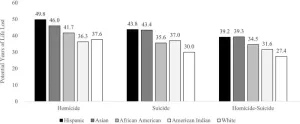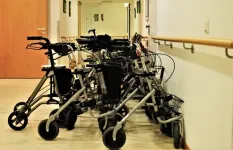(Press-News.org) INDIANAPOLIS – Pioneering cancer researcher Craig B. Thompson, MD, has been named the 2024 winner of the August M. Watanabe Prize in Translational Research.
Awarded by the Indiana University School of Medicine, the Watanabe Prize is one of the nation's largest and most prestigious awards recognizing individuals focused on shepherding scientific discoveries into new therapies for patients. The prize is awarded to a senior investigator who has made a significant contribution to the field of translational science.
Thompson is the former president and chief executive officer of Memorial Sloan Kettering Cancer Center from 2010 to 2022. He continues to oversee the Craig Thompson Lab at Sloan Kettering, where his research focuses on cellular metabolism and its role in disease and cancer. He is also a member of the National Academy of Medicine and the National Academy of Sciences.
Some of the Thompson lab's most notable scientific achievements include:
A long-standing collaboration with Carl H. June, MD, on how T lymphocytes are activated and gain effector function. These studies were the foundation upon which June's team then developed CAR-T immunotherapy, which has fundamentally changed the way several blood cancers are treated.
Being one of the first to characterize the first immune checkpoint CTLA4, which has led to revolutionary immunotherapy for the treatment of many cancers.
Defining how cells regulated programmed cell death. In collaboration with Stanley J. Korsmeyer, MD, Thompson's work was seminal in delineating the molecular mechanisms regulating cell death. This is an understanding that is now integral to almost every field of medicine, and Thompson has been centrally involved in translating these discoveries clinically into cancer therapeutics.
Establishing the pattern of reprogramed metabolism as a hallmark of cancer, which has led to new clinical approaches in both the treatment and diagnosis of cancer.
As the 2024 Watanabe Prize winner, Thompson will receive $100,000 and be honored at the Indiana Clinical and Translational Sciences Institute's Annual Meeting this September in Indianapolis, where he will give the keynote address. Housed at the IU School of Medicine, the Indiana CTSI is a statewide partnership among IU, Purdue University, the University of Notre Dame and the Regenstrief Institute.
"It is an honor to be recognized with the 2024 Watanabe Prize," Thompson said. "Dr. Watanabe was a pioneer in the science of translating new discoveries into improved therapies for disease. I look forward to attending the Indiana CTSI's Annual Meeting to discuss how new research into cancer cell metabolism is helping deliver therapeutic advances in the treatment of cancer and other proliferative diseases."
Thompson's other national and international recognitions include the Steven C. Beering Award for Medical Research (IU), the Vallee Award in Biomedical Science (American Society for Biochemistry and Molecular Biology), the Weinman Award (University of Hawaii), the Block Memorial Lectureship Award for Distinguished Achievement in Cancer (Ohio State University), the Bertner Memorial Award (The University of Texas MD Anderson), the American College of Physicians Award for Medical Science, and the Cori Award (Roswell Park Cancer Institute), as well as service on the Albert Lasker Medical Research Awards Prize Committee, the Board of Scientific Counselors of the National Cancer Institute, the Board of Directors of the American Association for Cancer Research, and the Howard Hughes Medical Institute Medical Advisory Board.
"We are looking forward to welcoming Dr. Thompson to our campus this fall," said Tatiana Foroud, PhD, the August M. Watanabe Professor of Medical Research and executive associate dean for research affairs at the IU School of Medicine. "Dr. Thompson's accomplishments and accolades reflect a pioneering career in groundbreaking translational research in immunology and cancer. His visit and keynote promise to be a wonderful opportunity for researchers at the IU School of Medicine and across the state to learn about his transformational work."
Thompson was nominated by IU School of Medicine Dean Jay L. Hess, MD, PhD, MHSA, and Kelvin P. Lee, MD, associate dean for cancer research at the school and director of the IU Melvin and Bren Simon Comprehensive Cancer Center.
"The translational impact of Dr. Thompson's work cannot be understated," Lee said. "He has made the foundational discoveries and established the essential translational frameworks to move these discoveries into the clinical arena — contributions that have not only significantly moved the field forward but also in entirely new directions. These new directions include paradigm- and practice-changing approaches in immunotherapy and precision metabolic targeting that are revolutionizing the way we treat cancer patients."
The Watanabe Prize is eponymously named in honor of the late August M. Watanabe, a titan in the field of translational research in both academia and industry who impacted the health of people around the world as a leader at the IU School of Medicine and Eli Lilly and Company.
Past Watanabe Prize recipients include Huda Zoghbi, MD (2023); Adrian R. Krainer, PhD (2022); Nancy J. Brown, MD (2021); Brian Druker, MD (2020); David Holtzman, MD (2019); Jean Bennett, MD, PhD (2018); Robert J. Lefkowitz, MD (2016); Carl H. June, MD (2015); and Tadataka Yamada, MD (2013).
END
Cancer researcher Craig B. Thompson named 2024 Watanabe Prize winner
2024-02-07
ELSE PRESS RELEASES FROM THIS DATE:
Chapman scientists code ChatGPT to design new medicine
2024-02-07
Generative artificial intelligence platforms, from ChatGPT to Midjourney, grabbed headlines in 2023. But GenAI can do more than create collaged images and help write emails — it can also design new drugs to treat disease.
Today, scientists use advanced technology to design new synthetic drug compounds with the right properties and characteristics, also known as “de novo drug design.” However, current methods can be labor-, time-, and cost-intensive.
Inspired by ChatGPT’s popularity and wondering if this approach could speed up the drug design process, scientists in the Schmid ...
Erectile dysfunction drugs may be linked to reduced risk of Alzheimer’s disease
2024-02-07
EMBARGOED FOR RELEASE UNTIL 4 P.M. ET, WEDNESDAY, FEBRUARY 7, 2024
MINNEAPOLIS – The drugs used to treat erectile dysfunction may also be associated with a reduced risk of Alzheimer’s disease, according to a study published in the February 7, 2024, online issue of Neurology®, the medical journal of the American Academy of Neurology. The study does not prove that erectile dysfunction drugs reduce the risk of Alzheimer’s disease. It only shows an association.
Erectile dysfunction drugs, which work by dilating blood vessels to allow more blood ...
Q&A: Helping robots identify objects in cluttered spaces
2024-02-07
Imagine a coffee cup sitting on a table. Now, imagine a book partially obscuring the cup. As humans, we still know what the coffee cup is even though we can't see all of it. But a robot might be confused.
Robots in warehouses and even around our houses struggle to identify and pick up objects if they are too close together, or if a space is cluttered. This is because robots lack what psychologists call "object unity," or our ability to identify things even when we can't see all of them.
Researchers at the University of Washington ...
Evaluation of ruxolitinib, a Janus Kinase inhibitor, in multiple myeloma
2024-02-07
“[...] the results of the studies presented in this review will hopefully provide the impetus for conducting additional preclinical and clinical studies to evaluate RUX in the setting of MM as well as other types of cancer.”
BUFFALO, NY- February 7, 2024 – A new research perspective was published in Oncotarget's Volume 15 on February 5, 2024, entitled, “Preclinical and clinical evaluation of the Janus Kinase inhibitor ruxolitinib in multiple myeloma.”
In this new paper, researchers Ashley Del Dosso, Elizabeth Tadevosyan, and James ...
Blood thinners added to clot-busting medication did not improve stroke outcomes
2024-02-07
Research Highlights:
Although giving blood thinners along with clot-busting medication may help in treating heart attacks, it did not improve 90-day outcomes in people with clot-caused strokes.
Enrollment in a large clinical trial, which had been planned to include more than 1,200 patients with ischemic stroke (clot-caused stroke), was halted after an independent data and safety monitoring board found no indication of benefit among the first 500 patients.
The data analysis for the 500 enrolled participants found giving blood thinners along with clot-busting medication did not increase the risk of bleeding into the brain.
Embargoed ...
Reinforcing the diverse ways people access seafood can ensure healthy communities in the face of change
2024-02-07
(Santa Barbara, Calif.) — As climate change affects the oceans, coastal communities, particularly those at the front lines of ocean warming and sea level rise, are facing pressures that could threaten their access to aquatic foods.
“Climate change and other economic shocks are impacting how people access seafood, and typically households that are most reliant on seafood, such as those in Pacific Island countries, are most at risk,” said Jacob Eurich, a research associate at UC Santa Barbara’s Marine Science Institute, and a fisheries scientist at the Environmental Defense Fund. Which is why, he added, it is necessary to increase food system resilience in the area, ...
Non-white victims of lethal violence and suicide in the US die significantly younger than their white counterparts
2024-02-07
In the US, people of color who are killed by violence or die by suicide lose more potential years of life than white victims, according to a new study, which also explored factors that may contribute to these disparities. Gregory Zimmerman of Northeastern University in Boston, US, and colleagues present these findings in the open-access journal PLOS ONE on February 7, 2024.
Mounting evidence suggests that, among victims of violence in the US, the average number of potential years of life lost—how much longer the victim would have lived if they survived—is greater for people of color than for white people.
To deepen understanding, Zimmerman ...
Almost 1 in 5 Indian adults aged 60+ show signs of mild neurocognitive disorder, according to nationally representative data - more than previously recognized
2024-02-07
Almost 1 in 5 Indian adults aged 60+ show signs of mild neurocognitive disorder, according to nationally representative data - more than previously recognized
###
Article URL: https://journals.plos.org/plosone/article?id=10.1371/journal.pone.0297220
Article Title: Prevalence of DSM-5 mild and major neurocognitive disorder in India: Results from the LASI-DAD
Author Countries: USA, UK, India
Funding: This work was supported by the National Institute on Aging (R01 AG051125 (JL), R01 AG030153 (JL), U01 AG064948 (JL), R01 AG070953 (ALG)). The funders had no role in study design, ...
More biodiverse nature landscapes may better buffer against stress - but only if you notice the difference, per experiment using videos of urban woodland
2024-02-07
More biodiverse nature landscapes may better buffer against stress - but only if you notice the difference, per experiment using videos of urban woodland
###
Article URL: https://journals.plos.org/plosone/article?id=10.1371/journal.pone.0297179
Article Title: Does increasing biodiversity in an urban woodland setting promote positive emotional responses in humans? A stress recovery experiment using 360-degree videos of an urban woodland
Author Countries: UK
Funding: SF received a PhD Studentship funding from the UKRI Economic and Social Research Council, ...
UK austerity politics correlated with increased frailty in the oldest adults
2024-02-07
The period of austerity politics from 2012 to 2018 was associated with steeper increases in frailty with age compared to pre-austerity between 2002 and 2010, according to a new study published February 7th in the open-access journal PLOS ONE by Carys Pugh of the University of Edinburgh, UK, and colleagues.
Previous research has linked a stalling in life expectancy growth to austerity politics implemented in response to the 2008-2009 financial crisis. However, the mechanism through which public spending cuts are associated with decreased life expectancy ...








